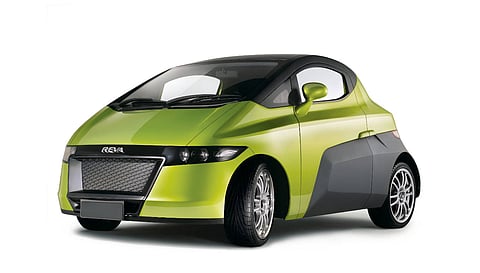Electric vehicles best placed to tackle Climate Change
According to a new comprehensive analysis conducted by the International Council on Clean Transportation (ICCT), a battery electric vehicle (BEV) sold today will emit fewer greenhouse gas emissions (GHGs) over the lifespan of the vehicle, than all other fuels and drivetrains of conventional vehicles, including from raw material extraction to recycling and disposal. The report concludes that EVs' clear superiority makes them critical for combating the climate crisis.
The study's author, ICCT researcher Georg Bieker, stated: “There is no realistic pathway to meaningful emissions reductions that relies on fossil-fuelled vehicles, including hybrids of any sort.”
India included
As per an ICCT's analysis, ‘A global comparison of the life-cycle greenhouse gas emissions of combustion engine and electric passenger cars,’ looked at four distinct, globally representative regions – the European Union, the United States, China, and India – and captured the differences between those markets, which account for roughly 70 per cent of new car sales worldwide. The GHG emissions from cars registered in 2021 are compared to those expected to be registered in 2030. Even with cars on the road today, BEVs outperform conventional vehicles in terms of relative GHG emissions in every region.
Peter Mock, ICCT’s managing director for Europe said: “Even for India and China, which are heavily reliant on coal for power, battery EVs (BEVs) still outperform fossil fuel vehicles in terms of life-time emissions impact. The results show that BEVs are universally superior.”
Detailed investigation
What distinguishes the findings from previous vehicle life-cycle analyses is the breadth of its methodology in considering:
- All relevant powertrain types, including plug-in hybrid EVs, as well as a variety of fuel types such as biofuels, electro-fuels, hydrogen, and electricity.
- The lifetime average carbon intensity of fuel and electricity mixes, accounting for changes in carbon intensity over a vehicle’s lifetime given current energy policies.
- Real-world usage instead of relying on official test values to calculate fuel and electricity consumption; this is particularly important when gauging GHG emissions of plug-in hybrid electric vehicles (PHEVs).
-The latest data on production and market average supply chains of industrial batteries which lead to significantly lower estimates of battery-produced GHGs than those found in other studies.
- The short-term potential for global warming due to natural gas and gas-driven methane leakage.
ICCT has found that only renewable electricity-powered BEVs and FCEVs can achieve the kind of deep reduction in the transportation GHG emissions needed to achieve Paris's objective of well below 2 degrees C world warming.
In order to achieve this objective, in 2050 world transport must emit approximately 80 per cent lower GHG emissions than it does today. As transport demand is anticipated to grow during that period, the on-road fleet should only consist of technologies that can achieve more than 80 per cent reduction over its life cycle by 2050.

